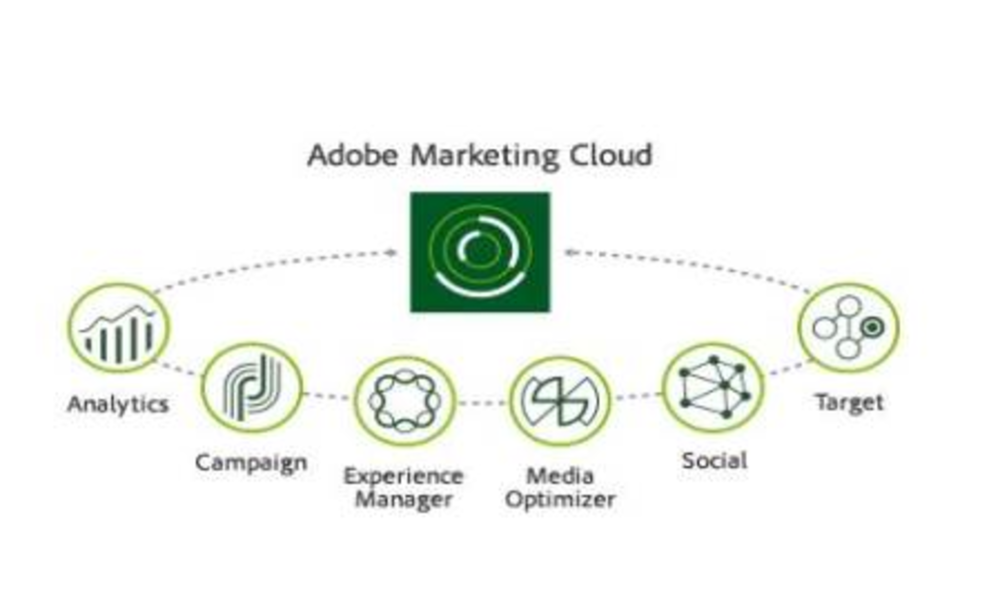When it comes to the marketing cloud wars, research firm Forrester has declared a clear winner.
Adobe was rated a leader in enterprise marketing software suites by Forrester, well ahead of fellow marketing cloud competitors, Salesforce, Oracle, IBM and SAP. Salesforce was the only other company to receive a “leader” categorization, although it trailed Adobe’s scores by a fair number.
“Adobe distanced itself from the pack with a combination of an innovative, detailed vision and in-market functionality designed solely to provide marketers with a clear incentive to use multiple solutions with the Adobe Marketing Cloud,” stated Forrester in the report.
Here’s how the rest of the vendors stacked up in Forrester’s report:
Leaders: Adobe, Salesforce
Strong Performers: SAS Institute, Oracle, IBM, Teradata
Contenders: SAP, Marketo
A big reason for Adobe’s high ratings was how far it has come along in integrating all its marketing solutions onto a unified platform. “Adobe’s core services offering is a technical accomplishment that helps customers achieve that level of integration with all its products,” says report author and Forrester Analyst Cory Munchbach. “Even though Adobe launched the core services in March, we haven’t seen any of the competing vendors match that same level of integration since then.”
Munchbach says Adobe’s customers were also the only ones who reported using a majority of Adobe’s products together, highlighting the value of its unified marketing suite. “It might not have been the first company whose strategy it was to integrate its marketing solutions, but it’s certainly the first to start delivering on it,” Munchbach says.
As the other leader in Forrester’s report, Salesforce received high marks more for its vision, and the roadmap it has charted for how its marketing solutions will work together with its other applications. “The Salesforce Marketing Cloud stands out for a vision that leverages its unique position in the broader Salesforce arsenal and its willingness to experiment and disrupt in this space, particularly with connected devices and mobile,” the report states.
While Salesforce’s individual marketing applications were deemed “middle-of-the-pack” by Forrester’s analysts, it was given a leader rating based on the robustness of its strategy and commitment towards Journey Builder, its first really unified tool for contextual marketing. “Salesforce was lacking in a few areas, such as analytics, and it got dinged in the report for that,” says Munchbach. “But the sum of what they are offering is greater than any of its individual components.”
Salesforce has already making enhancements to its analytics offerings with the launch of its Analytics Cloud at Dreamforce, and it also has the advantage of being supported by its Service and Sales Clouds, creating a powerful combined offering for enterprise firms.
For the rest of the competitors in the space such as IBM and Oracle, Forrester acknowledged their strong individual offerings but highlighted how their strategy of building a marketing suite through acquisitions had made it difficult for them to integrate their offerings.
Finally, Marketo, which was previously known for targeting small and midsize clients, squeaked into the report, proving that it is now a serious contender in the enterprise marketing software space. Munchbach says Marketo is definitely punching above its weight, and since it has built all its capabilities from the ground up, it doesn’t suffer from the integration problems that the bigger marketing clouds have. However, she says Marketo still has some way to go in proving that it can take on larger customers. “Marketo’s current customers really love what it can do, but they’re mostly B2B focused or small B2C brands,” says Munchbach. “Marketo’s challenge is to enhance its offerings to the point where it can serve a large retailer or a CPG brand to really start competing with the legacy companies.”
To download a free copy of the report from Adobe, click here (registration required.)








